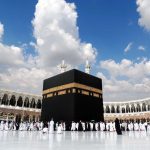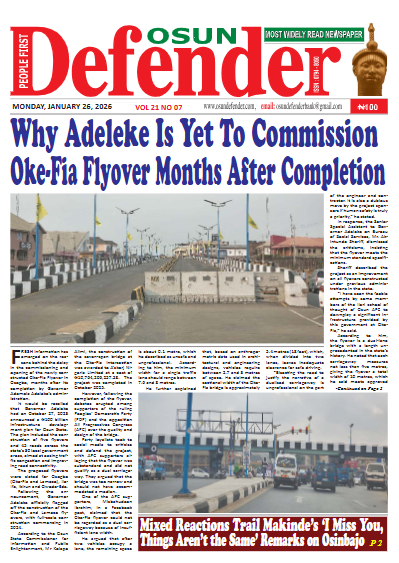JUMAT SERMON: Virtues Of The Ten Days Of Dhul-Hijjah

By Sheik Muhammad Abubakr Makanjuola
ALL praise is due to Allah, and may His peace and blessings be upon the final Messenger, His pure family, noble companions, and all those who follow them with righteousness until the Day of Judgment.
We give glory to Allah for sparing our lives to witness another Dhul-Hijjah, the twelfth month of the Islamic calendar, during which the Muslims perform Hajj. This is a period when every Muslim must strive hard to perform good deeds (worships, charity, good talks, etc) no matter how small.
There are certain times of year during which even small acts of worship are rewarded in abundance. These periods of the year are, in reality, gifts from Allah (SWT) that He has given to us. And from those blessed times in which worship is abundantly and hugely rewarded are the first ten days of Dhul Hijjah. There are no other days that are rewarded like these ten days. Sadly, many Muslims do not realise the greatness and superiority and virtues of these ten days, and treat these days like any other day.
It behooves Islamic scholars, Imams and alfas to enlighten every Muslims on the virtues of the ten days of Dhul Hijjah.
Good deeds during the ten days of Dhul-Hijjah are more beloved to Allah than righteous deeds in the last ten days of Ramadan. One of the good deeds is fasting nine days of the month, which is mustahabb. This is indicated by the words of the Holy Prophet (SAW), as narrated in the hadeeth of Ibn ‘Abbaas (may Allaah be pleased with him): There are no days in the year more beloved to Allah (SWT) than the first ten days of Dhul-Hijjah and the last ten nights of Ramadan, as they combine acts of worship in a way unlike any other time. The Prophet (PBUH) said, “There is no deed that is better in the sight of Allah or more greatly rewarded than a good deed done in the (first) ten days of Al-Adha”. It was asked, “Not even Jihad for the sake of Allah?” The Prophet (PBUH) replied, “Not even Jihad for the sake of Allah, unless a man goes out himself for Jihad taking his wealth with him and does not come back with anything.” Narrated by al-Bukhaari, 969.
And it was narrated from Hunaydah ibn Khaalid from his wife that one of the wives of the Holy Prophet (SAW) said: “The Messenger of Allaah (SAW) used to fast nine days of Dhu’l-Hijjah and the day of ‘Ashoora’ and three days of each month – the first Monday and two Thursdays.” Narrated by Imam Ahmad, 21829; Abu Dawood, 2437; classed as da’eef in Nasab al-Raayah, 2/180, but classed as saheeh by al-Albaani.
However, fasting on the day of Eid is haraam, as indicated by the marfoo’ hadeeth of Abu Sa’eed al-Khudri (may Allah be pleased with him): “He (the Prophet (SAW) forbade fasting on the day of (Eid) al-Fitr and the day of al-Nahr (the day of sacrifice, i.e., Eid al-Adha).” Narrated by al-Bukhaari, No. 1992; Muslim, 827. The scholars are unanimously agreed that it is haraam to fast on these days.
Righteous deeds on these ten days are better than the others. With regard to fasting, that should only be done on nine of them; the tenth day is the day of Eid when it is haraam to fast. Based on this, what is meant by the virtue of the ten days of Dhu’l-Hijjah is fasting nine days only, even though they are called ten days.
The first ten days of Dhul Hijjah is here and we should not miss out on a single blessing. Even if we are not going on Hajj, there’s plenty good deeds to make.
We should perform and increase our Dhikr and Takbeer, night prayers, fasting all nine days especially the Day Of Arafah, make sincere repentance, recite the Holy Quran regularly and give Sadaqah and Charity.









